British Columbia Curriculum
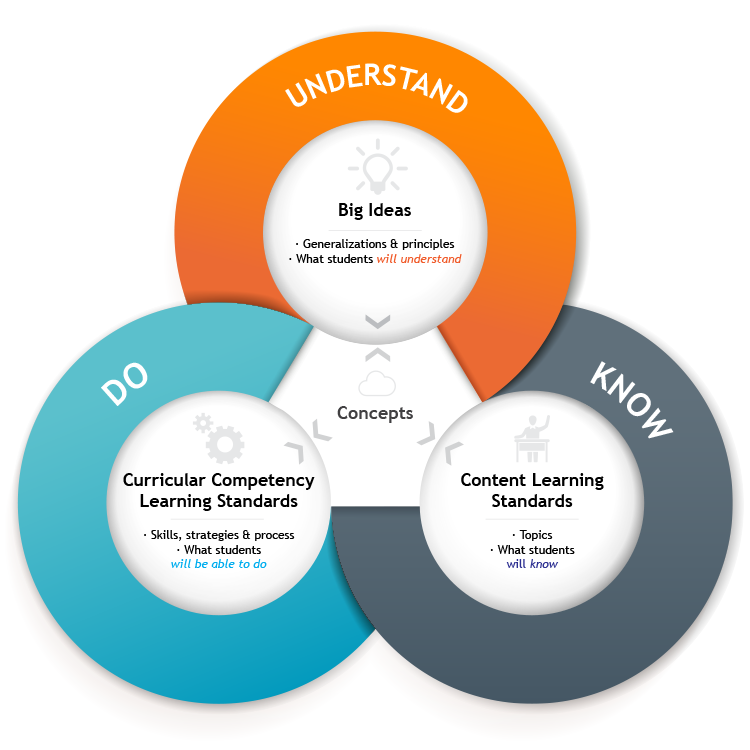
In British Columbia, educators use this curriculum as a guide for classroom planning across all applicable subject areas. The core competencies focus on intellectual, personal, social, and emotional proficiencies for students. I appreciate that the curriculum places value on these areas as I believe that learning begins with positive relationships and the wellbeing of the self. This is something that I acknowledge that begins at home prior to entering school. The curriculum acts as the building block to every educators successful classroom.
For the First Peoples Principles of Learning
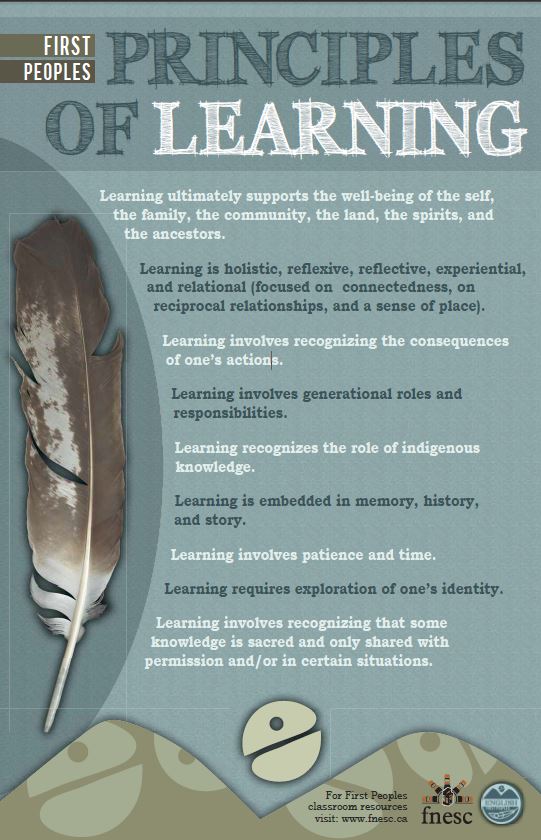
I value the First Peoples Principles of Learning. These Indigenous values take us away from the traditional thoughts and principles of the school system and is evidence that change can occur. Connecting students to the world beyond the classroom can be applicable for all students no matter what cultural background they come from. These Indigenous views on learning can be applied and connected to the classroom.
http://www.fnesc.ca/first-peoples-principles-of-learning/
Seven Grandfather Teachings
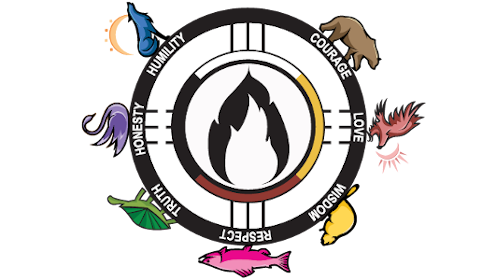
A new addition to SD 73, the Seven Grandfather Teachings connects to the local community. Building on the knowledge and stories of the Secwépemc people, the seven grandfather teachings can help us to better understand ourselves and connect our communities together. Bringing stories and teaching to the classroom allows students to consider what values they hold. This supports students social emotional development while incorporating Indigenous knowledge in the classroom.
https://www.sd73.bc.ca/en/our-district-board/seven-grandfather-teachings.aspx
Inclusive Education
I believe that everyone deserves an opportunity to reach their full potential. Every student is a unique individual. They learn and grow in their own way. Some students may require different levels of support and assistance in the classroom. I support and embrace this with an open door. No student should be turned away based on their capabilities. There is value in teaching your classroom about inclusion. We can all learn and grow from each other no matter how different we are.
Professional Standards for British Columbian Educators
It is pertinent that every educator to familiarize themselves with this document. The professional Educators guides us in what our ethical roles and responsibilities are. We are held to and are accountable to meet all seven of these standards. Knowledge and use of these standards allow and individual to become a knowledge and competent professional. These standards are there to support and protect students, their families and overall wellbeing while also promoting an educator to be and effective and committed continual learner.
There are 9 professional standards
1. Educators value the success of all students. Educators care for students and act in their best interests
2. Educators act ethically and maintain the integrity, credibility, and reputation of the profession
3. Educators understand and apply knowledge of student growth and development
4. Educators value the involvement and support of parents, guardians, families and communities in schools
5. Educators implement effective planning, instruction, assessment and reporting practices to create respectful, inclusive environments for student learning and development
6. Educators demonstrate a broad knowledge base and an understanding of areas they teach
7. Educators engage in professional learning
8.Educators contribute to the profession
9. Educators respect and value the history of First Nations, Inuit and Metis in Canada and the impact of the past on the present and the future. Educators contribute towards truth, reconciliation and healing. Educators foster a deeper understanding of ways of knowing and being, histories, and cultures of First Nations, Inuit and Metis
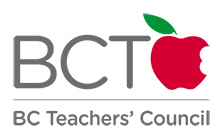
Truth and Reconciliation: Calls to Action
The Truth and Reconciliation calls to action gives a specific breakdown of areas of improvement. This is relative to relevant to organizations and ministries within Canada. It covers a vast amount of areas for improvement. Some of these include: child welfare, language, education, health and justice. In 2015 the TRC released this and it continues to serve as a guide for areas that require improvement that will better support Indigenous peoples in Canada
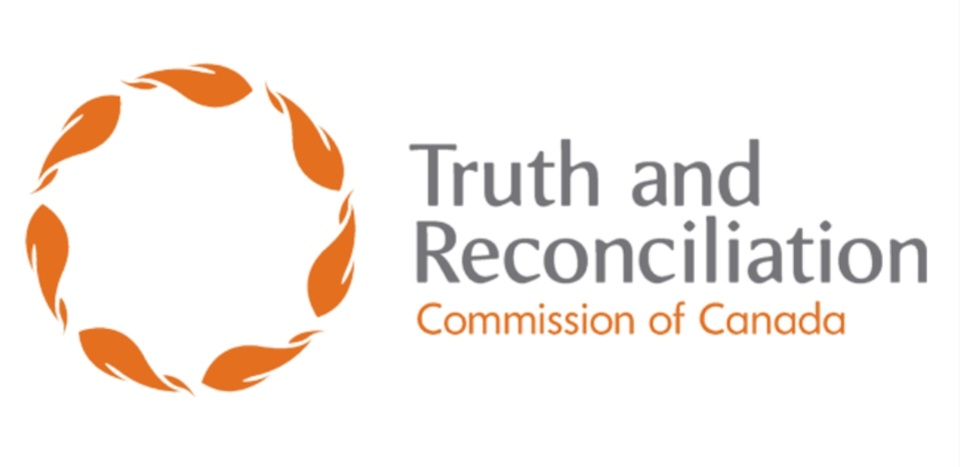
https://crc-canada.org/en/ressources/calls-to-action-truth-reconciliation-commission-canada/
